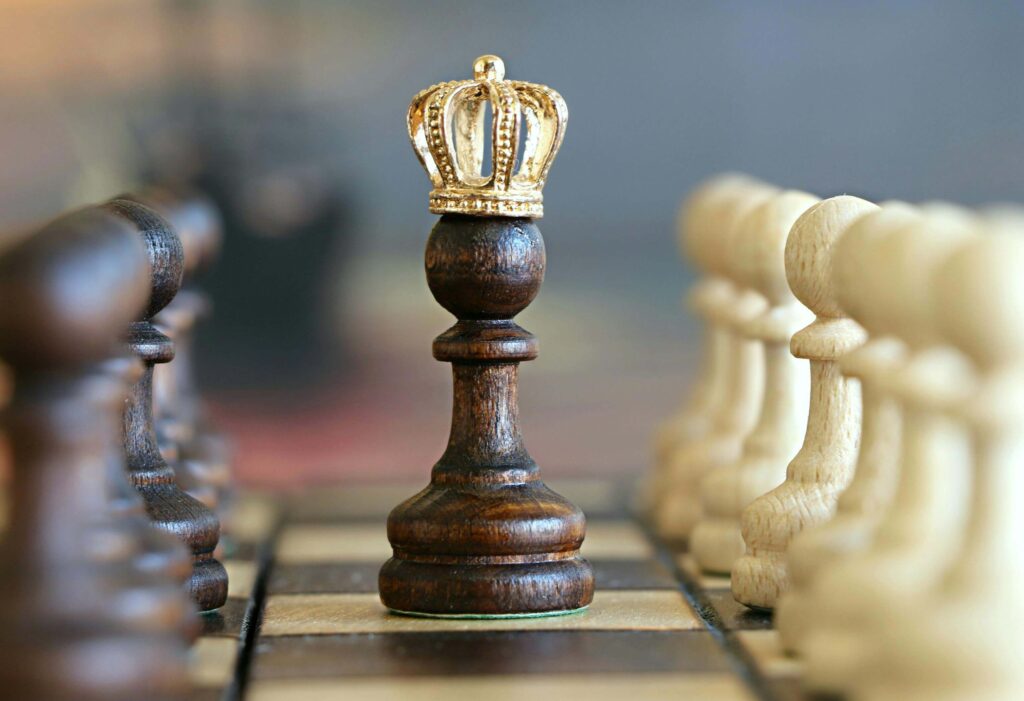Introduction: Unlocking the Power of the Mind
In an age where digital distractions are rampant, finding activities that challenge the brain while providing entertainment is more important than ever. Strategic games and puzzles offer a unique blend of mental stimulation, problem-solving, and fun, making them an excellent choice for anyone looking to enhance their cognitive abilities. Whether it’s a classic game of chess, a complex puzzle, or a strategic video game, these activities can significantly impact brain health and cognitive performance.
How Strategic Games and Puzzles Boost Cognitive Function
1. Enhanced Problem-Solving Skills
Strategic games and puzzles require players to think critically, plan ahead, and develop strategies to overcome challenges. These activities engage the brain’s problem-solving centers, encouraging the development of higher-order thinking skills. For example, games like chess or Sudoku force players to analyze patterns, anticipate outcomes, and make decisions based on logic and reasoning. This constant mental engagement helps sharpen problem-solving abilities, which can translate into better decision-making in everyday life.
2. Improved Memory and Recall
Many strategic games and puzzles involve remembering sequences, patterns, or previous moves to succeed. This repeated engagement helps strengthen working memory—the brain’s ability to hold and manipulate information over short periods. For instance, in card games like Bridge or Memory, players must recall previous cards played and predict future moves. This process not only enhances memory but also improves the brain’s ability to recall information quickly and accurately.
3. Increased Cognitive Flexibility
Cognitive flexibility refers to the brain’s ability to switch between thinking about different concepts or to adapt behavior to achieve goals in new situations. Strategic games and puzzles often require players to shift strategies or adapt to new challenges, promoting cognitive flexibility. Games like Scrabble, where players must form words from a random selection of letters, or puzzle games that require new solutions as the difficulty increases, force the brain to remain agile and adaptable.
4. Better Concentration and Focus
Playing strategic games and solving puzzles demand sustained attention and focus. Whether it’s maintaining concentration during a long game of Risk or staying engaged while working through a challenging jigsaw puzzle, these activities train the brain to focus for extended periods. This increased ability to concentrate can have positive effects on other aspects of life, such as work or study, where sustained attention is crucial for success.
5. Stress Relief and Mental Relaxation
While it might seem counterintuitive, engaging in strategic games and puzzles can also serve as a form of stress relief. The immersive nature of these activities allows players to enter a state of “flow,” where they become fully absorbed in the task at hand, temporarily setting aside external worries. This state of focused relaxation can reduce stress and promote mental clarity, leaving players feeling refreshed and mentally rejuvenated.
Practical Tips for Incorporating Strategic Games and Puzzles into Your Routine
1. Start Small with Daily Puzzles
Incorporate daily puzzles like crosswords, Sudoku, or brain teasers into your routine. These can be completed in just a few minutes each day but provide consistent cognitive engagement.
2. Join a Strategy Game Club
Consider joining a local or online club focused on strategic games such as chess, Go, or bridge. Regular play with others not only sharpens your skills but also provides social interaction, further enhancing cognitive benefits.
3. Incorporate Digital Puzzle Games
There are countless apps and online platforms offering strategic games and puzzles that can be accessed anytime. These can be a great way to take a break and stimulate your brain during the day.
4. Challenge Yourself with New Games
Don’t stick to just one type of game or puzzle. Challenge your brain by learning new strategic games or tackling more complex puzzles. This variety ensures that your brain is constantly being stimulated in different ways.
Supporting Cognitive Health with Supplements
To maximize the cognitive benefits of playing strategic games and puzzles, consider supplementing your brain’s health with cognitive enhancers like NTRY. This supplement is designed to support memory, focus, and overall cognitive function, helping you stay sharp and mentally agile both during gameplay and in daily life.
Conclusion: A Fun Path to Cognitive Excellence
Strategic games and puzzles offer a powerful combination of mental stimulation and enjoyment. By regularly engaging in these activities, you can enhance your problem-solving skills, improve memory, increase cognitive flexibility, and boost your concentration—all while having fun. Combined with a healthy lifestyle and cognitive-supporting supplements like NTRY, these games can become a key part of your strategy for maintaining and improving brain health.



